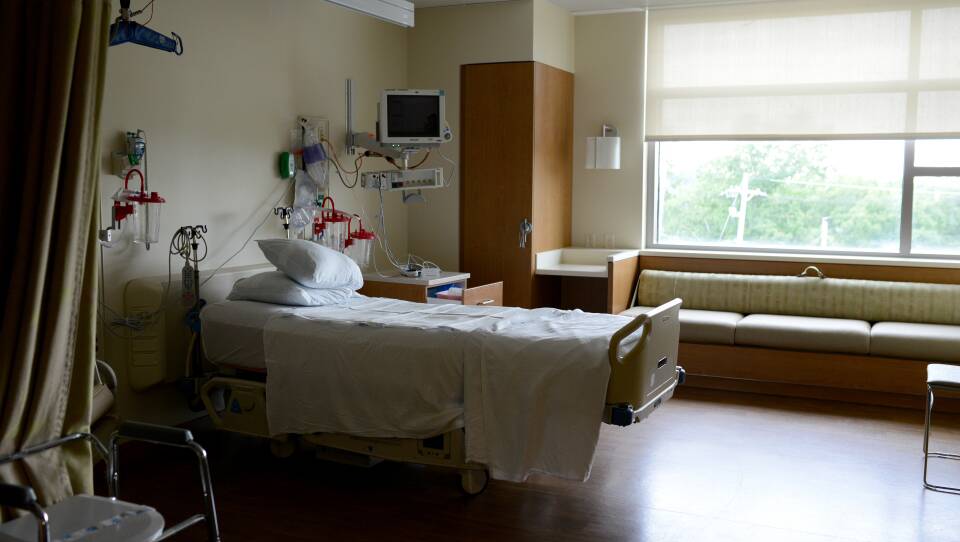With a surge of COVID-19 cases expected in just a few days, Massachusetts hospitals with fewer beds and smaller staff are bracing for the onslaught of patients by increasing the number of intensive care beds and re-using some protective gear for their medical staff.
Experts and some hospital leaders also say the state’s 42 community hospitals could be better used as a relief valve — taking in less sick patients and freeing up beds in the bigger, academic hospitals for the most serious coronavirus cases.
Dr. Ashish Jha, the head of the Harvard Global Health Institute, said that a surge of seriously sick patients will be particularly hard for community hospitals to handle because they lack the financial and staffing resources of the teaching hospitals in the cities. His institute just released a state-by-state report on how infection rates of COVID-19 are likely to create a big shortfall of hospital beds.
“We're going to see community hospitals having to manage a lot of patients that they're not used to managing, and I think that's going to be a real challenge for them,” he said.
One possible solution would be for hospitals to coordinate — sending the sickest patients to the bigger academic hospitals that have more ICU beds and a bigger staff while community hospitals handle patients who don’t require that intensive level of care.
That kind of coordination happened successfully in the aftermath of the Boston Marathon bombing, said Jha.
"But if you're going to start doing unusual things like taking the not-critically-ill people at MGH and sending them to Brockton, that doesn't happen very often. And there aren't normal mechanisms for doing that,” he said. “That kind of strategic planning will require some outside intervention. The obvious natural role is the state.”
State officials could not confirm if such a plan is under consideration. But the state’s move to build field hospitals in Worcester and Boston for less critical COVID-19 patients uses a similar logic: to free up the intensive care beds that do exist.
Bigger hospital networks are already doing this, triaging patients among their sites depending on the severity of their COVID-19 cases.
For example, Beth Israel Lahey Health — like other networks — ended elective surgeries, including at New England Baptist Hospital, which specializes in orthopedic care. Spokeswoman Jennifer Kritz said that in order to free up beds at its other hospitals for patients with COVID-19, Beth Israel Lahey Health is now transferring hospitalized patients with other medical issues to New England Baptist, which has 118 inpatient beds.
Win Brown, the president of Heywood Healthcare that runs community hospitals in Gardner and Athol, said he is already talking to Boston hospitals about Heywood accepting some of their patients recovering from COVID-19.
“In response to the Boston Marathon bombing, we were one of those hospitals that was set and ready to accept patients if need be,” he said. “We've already been in conversation with a couple of the Boston hospitals, vetting whether or not we could take some of their post-acute patients.”
Heywood’s hospital in Gardner has only six intensive care beds, half of them already occupied by COVID-19 patients. They can only expand the ICU to 11 beds. But if COVID-19 cases rise as forecasted, Brown said it's not just beds he'll run out of — it’s the staff.
“We don't have as many specialists as other hospitals would have. We don't have as big a bench,” said Brown. “One of our major concerns, it goes to nursing as well, is what happens if a bunch of people get sick all at the same time? And how are we going to care for everyone?”
They’re also worrying in Brockton at the Signature Healthcare hospital — with 15 coronavirus patients and another 15 awaiting test results. The hospital has doubled its critical care rooms to 32 and increased the number of negative-pressure rooms that don’t allow air to escape into hallways.
Barbara Curley, the hospital’s chief quality officer, said bed availability is the big concern.
“If we have a significant influx of hospital level of care patients that really require that more intensive care, then we might run out of beds,” she said.
Curley said there is already a bottleneck in many hospitals because of a secondary effect from the pandemic.
Homeless patients who appear to have COVID-19 have to be admitted to the hospital because they can’t be released back into community until tests prove they’re negative.
And patients who arrived from nursing homes for COVID-19 tests are similarly trapped in the hospitals until they are cleared. All of them are taking up inpatient beds, said Curley.
Community hospitals like the ones in Brockton and Gardner are also concerned about supply and equipment shortages.
“We are all struggling to make sure that we have adequate supplies on hand to meet the need,” said Brown.
The Brockton hospital is welcoming donations of homemade masks for some of its staff.
If an outbreak happens in a nearby nursing home or assisted living facility, Brown said “we need to be prepared to take care of those folks, but it also could easily overwhelm us.”





